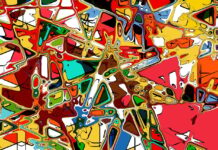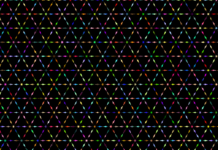Rustdesk is a groundbreaking remote desktop application that has garnered significant attention in the tech world for its unique blend of performance, security, and user-friendly design. Developed with the Rust programming language, Rustdesk stands as a testament to the potential of modern programming languages in crafting robust and efficient software solutions. This remote desktop application enables users to connect to and control remote computers seamlessly, bridging the geographical gap between users and their machines.
In an era where remote work and virtual collaboration have become essential components of the modern workforce, tools like Rustdesk play a crucial role in facilitating seamless communication and access to resources. With Rustdesk, users gain the ability to remotely access their computers, retrieve files, troubleshoot issues, and perform tasks as if they were physically present at the machine. The significance of this capability is underscored by its potential to enhance productivity, reduce downtime, and foster a sense of continuity in work environments.
Rustdesk’s standout feature lies in its programming foundation. Developed using the Rust programming language, the application inherits the language’s key traits of safety, concurrency, and performance. Rust is celebrated for its memory safety features that minimize the risk of common programming errors such as null pointer dereferences and buffer overflows. This design choice enhances Rustdesk’s security posture, making it less susceptible to vulnerabilities that often plague other remote desktop applications.
Security remains a paramount concern in the digital age, and Rustdesk’s approach to security is a noteworthy aspect of its appeal. With increasing cyber threats and data breaches, remote desktop applications must prioritize robust encryption and authentication mechanisms. Rustdesk incorporates modern encryption standards, ensuring that data transmitted between the local and remote machines remains secure and private. Moreover, the application’s commitment to security aligns with industry best practices, providing users with a trustworthy and protected remote access experience.
User experience is another pivotal area where Rustdesk excels. The application boasts an intuitive and clean interface that facilitates ease of use, even for non-technical users. Setting up remote connections, managing access, and navigating through the interface is designed to be straightforward and hassle-free. This focus on user experience contributes to Rustdesk’s accessibility, making it suitable for a wide range of users, from tech-savvy professionals to individuals who might be less familiar with remote desktop tools.
The open-source nature of Rustdesk also contributes to its growing popularity. Open-source software encourages collaboration, innovation, and transparency. Developers around the world can contribute to the project, enhancing its features, fixing bugs, and ensuring its continuous improvement. This collaborative approach resonates with the principles of the modern tech community, where sharing knowledge and expertise leads to the creation of robust and reliable solutions.
Moreover, Rustdesk’s lightweight design aligns with the current trend of efficiency and resource optimization. Remote desktop applications often struggle with resource consumption, leading to sluggish performance and frustration. Rustdesk’s lightweight footprint ensures that it operates smoothly without putting excessive strain on system resources. This efficiency contributes to a seamless remote desktop experience, even on devices with limited hardware capabilities.
The practical applications of Rustdesk are vast and diverse. Beyond the realm of remote work, the application finds utility in scenarios where technical support and troubleshooting are required. IT professionals can remotely assist users, diagnose issues, and provide solutions without the need for physical presence. This capability not only expedites problem resolution but also reduces the costs associated with on-site support visits.
Furthermore, Rustdesk’s platform-agnostic nature ensures its compatibility with a range of operating systems. Whether users are on Windows, macOS, or Linux, Rustdesk’s cross-platform support enables them to connect to their remote machines seamlessly, regardless of the underlying operating system.
In the rapidly evolving landscape of technology, Rustdesk has carved a distinctive niche for itself by embodying the principles of security, efficiency, and accessibility. Its use of the Rust programming language showcases the potential of modern languages in software development, setting new standards for security and performance. As the world continues to embrace remote work and virtual collaboration, Rustdesk stands as a reliable and versatile solution that empowers users to stay connected, productive, and secure in their digital endeavors.
Rust Programming Foundation:
Rustdesk is developed using the Rust programming language, known for its memory safety, concurrency, and performance characteristics. This foundation enhances the application’s security, stability, and efficiency.
Robust Security Measures:
The application prioritizes security by incorporating modern encryption standards, ensuring that data transmission between local and remote machines remains secure and confidential. Rustdesk’s security measures align with industry best practices, fostering user trust.
Intuitive User Experience:
Rustdesk features an intuitive and user-friendly interface that simplifies remote desktop access and control. Users, regardless of technical expertise, can set up connections, manage access, and navigate the application effortlessly.
Efficiency and Resource Optimization:
Rustdesk’s lightweight design optimizes resource consumption, enabling smooth and efficient remote desktop performance. This efficiency ensures a seamless experience even on devices with limited hardware capabilities.
Cross-Platform Compatibility:
Rustdesk is platform-agnostic, offering compatibility with various operating systems including Windows, macOS, and Linux. This cross-platform support ensures that users can connect to their remote machines regardless of the underlying OS.
These key features highlight how Rustdesk addresses the modern needs of secure and efficient remote desktop access, emphasizing its foundations in the Rust programming language and commitment to user-friendly design.
In the rapidly evolving landscape of technology, where innovation seems to know no bounds, the emergence of Rustdesk as a prominent player in the realm of remote desktop applications is a testament to the power of ingenuity and programming excellence. Beyond the key features that define its functionality, Rustdesk embodies a broader narrative of adaptability, empowerment, and the symbiotic relationship between modern programming languages and software development.
The world of remote work and virtual collaboration has gained unprecedented prominence, catalyzed by global events that reshaped how we approach work and communication. As the boundaries between physical and virtual spaces blur, tools like Rustdesk step into the spotlight, enabling users to bridge the gap between their personal devices and remote computers. This digital tether is more than just a convenience; it’s a lifeline that sustains business continuity, empowers technical support, and enriches the way we interact with our machines.
At the heart of Rustdesk’s success lies its adoption of the Rust programming language. Rust, often hailed as a language fit for systems programming, embodies principles that align seamlessly with the demands of modern software development. It prioritizes memory safety and eliminates common programming pitfalls, resulting in a secure and robust application. This marriage of technology and methodology echoes the larger theme of security-conscious programming in an age rife with cyber threats and vulnerabilities.
Rustdesk’s impact extends beyond its functional capabilities. It’s a testament to the adaptability and resilience of technology as it responds to changing paradigms. The application’s rise coincides with a momentous shift in how we work, learn, and communicate. Rustdesk becomes an enabler, allowing businesses to transcend geographical barriers and technical complexities. This empowerment translates into productivity gains, enabling businesses to thrive in a world where remote work is more than just a trend; it’s a fundamental shift in how we engage with our professional lives.
In a landscape dominated by the digital realm, user experience remains a cornerstone of any successful software. Rustdesk’s clean and intuitive interface signifies a commitment to user-centric design. As technology evolves, so do user expectations. Rustdesk rises to this challenge, offering an interface that caters to users of varying technical backgrounds. The accessibility it offers underscores the democratization of technology, where complex tools become accessible to a broader audience.
Rustdesk’s journey aligns with the ethos of open-source development, where collaboration and transparency fuel progress. The open-source model represents a departure from traditional closed systems, reflecting the evolving nature of software creation. In an interconnected world, knowledge-sharing and collective intelligence become paramount. Rustdesk’s open-source nature invites collaboration from developers around the globe, contributing to its growth, stability, and continuous improvement.
Moreover, Rustdesk’s application goes beyond the realm of remote work. It echoes the broader trends of efficiency and optimization. As technology continues to evolve, it’s imperative that applications leverage resources judiciously. Rustdesk’s lightweight design is emblematic of this principle. It offers a robust remote desktop experience without taxing system resources excessively, reflecting a commitment to sustainability and efficient software design.
In the context of technical support, Rustdesk redefines the dynamics of assistance and troubleshooting. Traditionally, support involved physical visits or lengthy phone conversations. Rustdesk transcends these limitations, allowing IT professionals to remotely diagnose and solve issues, regardless of physical location. This approach translates into faster problem resolution, reduced operational costs, and a more seamless experience for end-users.
Rustdesk’s cross-platform compatibility underscores the changing landscape of technology ecosystems. Operating systems are no longer islands; they coexist and collaborate. Rustdesk’s ability to function seamlessly across different OS environments exemplifies the interconnected nature of modern software. It’s a nod to the diverse ways in which technology is integrated into our lives, underscoring the need for software to transcend platform limitations.
In essence, Rustdesk’s impact reverberates through multiple dimensions. It reflects the adaptability of technology in the face of change, the empowerment it offers to users in navigating this change, and the synergy between modern programming languages and software development. Rustdesk is a microcosm of the larger story of technology’s role in shaping our world. It’s a testament to how software, far from being static, evolves in response to our evolving needs, creating a digital tapestry that weaves together efficiency, security, accessibility, and collaboration. As we look to the future, Rustdesk stands as a beacon, guiding us towards a new era of connected and empowered technology experiences.






















